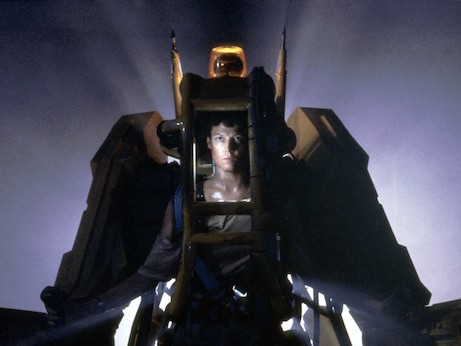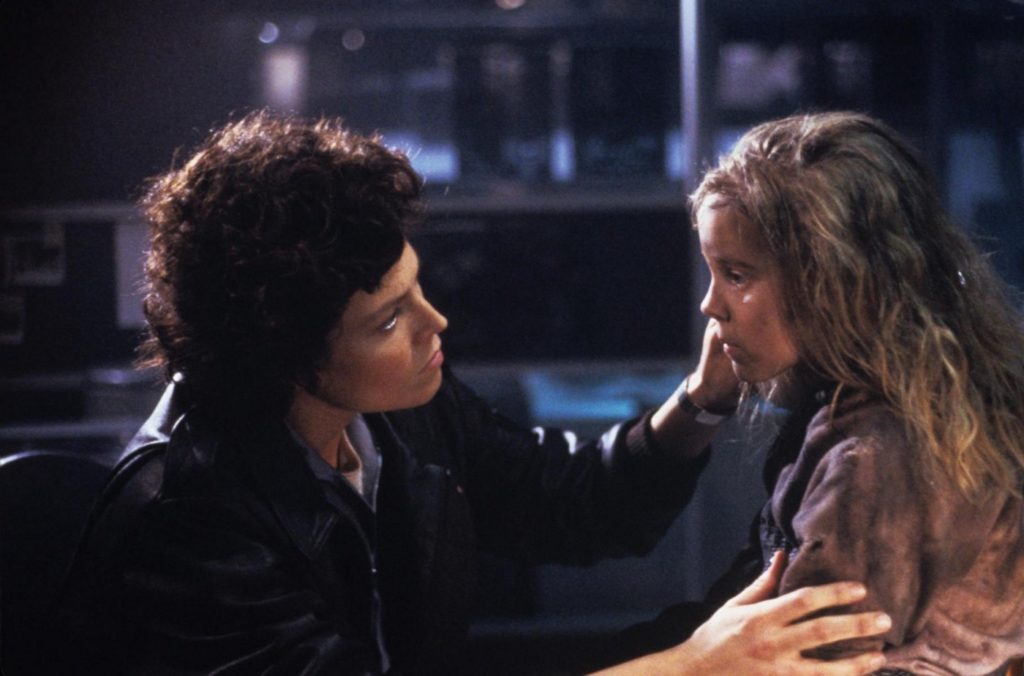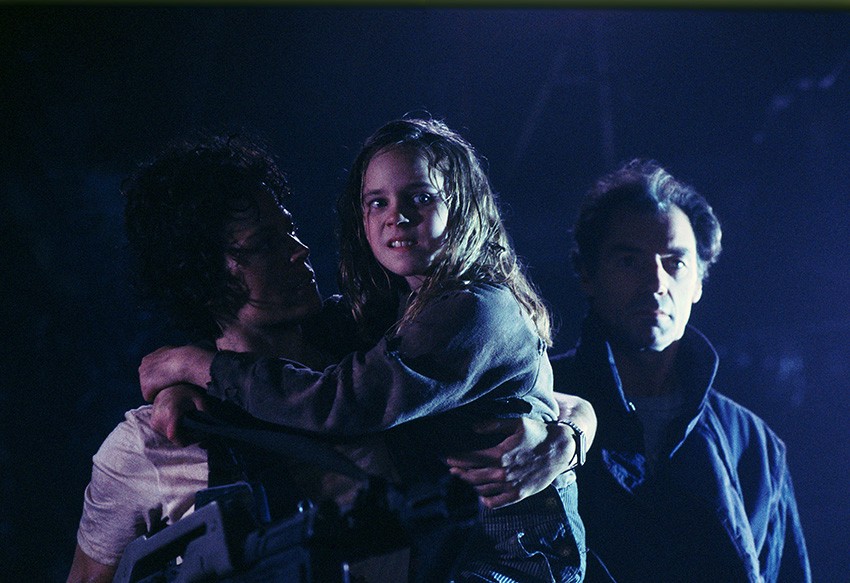Incluvie Foundation Gala - Learn More
James Cameron’s Aliens: A Classic Tale, Brimming With Female Empowerment and Social Resonance
James Cameron’s “Aliens” (1986) is a pinnacle of science fiction storytelling. Within this classic monster movie lies a powerful female character, Ellen Ripley (brilliantly portrayed by Sigourney Weaver).
Aliens (1986)


Film is a medium of great power, often used to entertain the masses; however, the best films connect with us on a humanistic level. This can be said for James Cameron’s “Aliens” (1986), a pinnacle of science fiction storytelling. Within this classic monster movie lies a powerful female character, Ellen Ripley (brilliantly portrayed by Sigourney Weaver). In the 1980s, male stars like Arnold Schwarzenegger, Sylvester Stallone, Harrison Ford, Bruce Willis, Chuck Norris, and Jean-Claude Van Damme ruled the action genre. Yet even to this day, the character of Ripley remains one of the best characters to ever grace the silver screen. Weaver’s performance is the stuff of legend, and today, her impact on the science fiction genre is immeasurable, especially for women. Simply put, “Aliens” is a profound piece of cinema, filled with female empowerment and social resonance.

Let’s look at how Ripley is presented from a visual standpoint. Cameron is a filmmaker widely known for crafting tough yet heroic characters, complete with mental and physical formidability. In this case, Ripley’s physical nature is simple. She’s not wearing a tight, skimpy outfit like Angelina Jolie’s Laura Croft. She’s not showcasing her legs and glamour like Jane Fonda’s Barbarella. In a simple yet wise turn of events, Ripley is treated as being a true worker, unafraid to get her hands dirty (similar to Ridley Scott’s original film). Ripley wears simple work clothes and yet, there is no denying her beauty. She’s legitimately beautiful, but Cameron never makes an attempt to sexualize her. Quite frankly, Ripley’s sexiness comes from her gravitas, sincerity, and can-do attitude. This simple rendition of attire is a bold statement, considering the fact that often times, women are expected to look perfect and proper.
Early on, we hear that Ripley is a labor worker. Burke says to her, “Oh, right. I hear you’re working in the cargo docks, running loaders and fork lifts.” Later on, before landing on the alien planet (LV-426), Ripley proves to her male comrades that she is an expert at driving loaders. Here, Cameron is destroying the confines of gender expectations. In life, there is an unfair assumption which states that running heavy machinery is a man’s job. Cameron is telling us that female opportunity should know no bounds. By the end, Ripley is proven to be the best soldier of the bunch, even though she isn’t an employed member of the military. This is a subtle way of saying that women can be valuable soldiers, complete with intellect, experience, and leadership. At times, she’s being a mother-like figure. Other times, she is working with the marines. Her ability to handle motherhood and work oriented aspects points to the independent image of modern day females, which is made up of balancing two personas: mother and worker.
One of the big appeals of “Aliens” is the fact that the people involved are broken individuals. Due to an alien attack, Newt (a young girl) has lost her parents and brother. So very quickly, she becomes an orphan, completely alone on LV-426. Ripley, on the other hand, is a woman out of time. In Ridley Scott’s “Alien” (1979), Ripley entered a form of stasis, expecting to be found within a couple of weeks. Instead, her spacecraft wandered through space for 57 years. Like any normal being, Ripley’s encounter with the Xenomorph creature has taken a toll on her. On a consistent basis, she has horrific nightmares and sweats profusely.
If we look at Cameron’s director’s cut, we will find even more depth that resides within Ripley. Simply put, the extended cut shines light on Ripley’s domestic life. She was a mother of one (a female). After coming out of stasis, she finds that her daughter has passed away due to old age. Overall, this inclusion of motherhood enhances Ripley’s tortured state. In other words, she doesn’t just have the horrors of space to deal with. She also has to deal with familial tragedy and lost time, two aspects that everyone can relate to.

It’s important to discuss the tones of the first two Alien films. Scott’s original film is a dark form of science fiction, focused on the evils of space and nature. It is a depressing picture, designed to tap into our fears of sexual destruction, body horror, and the unknown. For all intents and purposes, Scott’s film is a blend of science fiction and horror. On the opposite side of the cinematic spectrum, Cameron’s sequel adjusts its cinematic barrings by embracing action specifications. Granted, Cameron’s film still has ties to science fiction and horror, but in many ways, it’s also an action flick.
Once Ripley arrives on LV-426, things start improving. As the film moves along, a larger form of positivity continually grows. The crux of the film deals with the formation of a family, constructed through determination, hardship, and horrific circumstances. There is a spark between Ripley and Newt. They bond, and as time progresses, they form a mother-daughter relationship which becomes the heartbeat of the picture. As human beings, this message is infinitely timeless. As we all know, life can bring us to our knees. At times, it’s an unrelenting force of adversity and disappointment. Cameron’s flick, while dark and demented, is a powerful narrative, which tells us that love conquers the horrors of the world. This message is brought to life through the existence of Ripley, one of the best heroines in cinematic history.
It’s important to breakdown the film’s antagonists. Firstly, there is the alien race, the Xenomorphs. At the end of the film, Ripley ventures into the Xenomorph Queen’s nest, determined to save an innocent soul. From there, an iconic showdown transpires. Ripley, a human mother, is facing an alien mother. In terms of simplistic aspects, the Queen is a perfect monster of cinema. Her massive size taps into the fear of being physically overwhelmed. Her hiss represents her species’ sense of hostility. Her reasoning points to a species that is extremely intellectual. When combined, these elements create the perfect killing machine.
Let’s dig even deeper. At their core, these monstrous antagonists represent sexual invasion. An egg opens. An alien latches onto a human’s mouth. While connected, the alien impregnates the human with an extraterrestrial embryo. Then, an alien bursts out of a human’s chest, which signals the end of the birth cycle. Later on, the elder aliens hunt for humans, hoping to start another cycle of rape and birth. For all intents and purposes, these creatures are sexual abusers.

Obviously, the aliens aren’t the only antagonists. We are shown shades of corporate corruption. Paul Reiser plays Carter Burke, a representative of the Weyland-Yutani corporation. In “Alien,” the corporation sent Ripley’s crew into a cosmic hell. In Cameron’s film, we are unsure if the company’s makeup is wholly corrupt. But overall, Burke is a corrupt member of corporate society. He unleashes alien creatures, hoping that they will impregnate Ripley and Newt. From there, he wants to analyze the aliens, weaponize then, and make a fortune. In very subtle ways, Burke parallels the real life antagonists that stand in the way of modern women. Like real life abusers, he intends to use sexual aspects (the alien cycle) as a form of control. And like real life instances that deal with corporate America, Burke attempts to make Ripley a victim of horrific circumstances.
In Cameron’s film, Ripley is an example of good conquering evil. The story is all about female courageousness. Ripley makes a concerted effort to go back to the place that haunts her dreams. She’s embracing her fears, because she knows that darkness has to be conquered or else the evils of reality will consume her. Through trials and tribulations, she faces her sexual aggressors, and in time, she wins. Her arc will always resonate, but in this time and place, her story is cinematic electricity.

Originally Published 9/5/2019 by Dillon McCarty for Incluvie
More to explore
By Same Author
Related lists created by the same author
By Cluvie Category
Related diversity category
Whitest Season: Privilege Comes First in ‘Happiest Season’
By General Category
Related movie/TV/List/Topic
Asha's 'Wish' (2023)
Asha, the main character, is a biracial woman who discovers the power of magic wishing dust.




